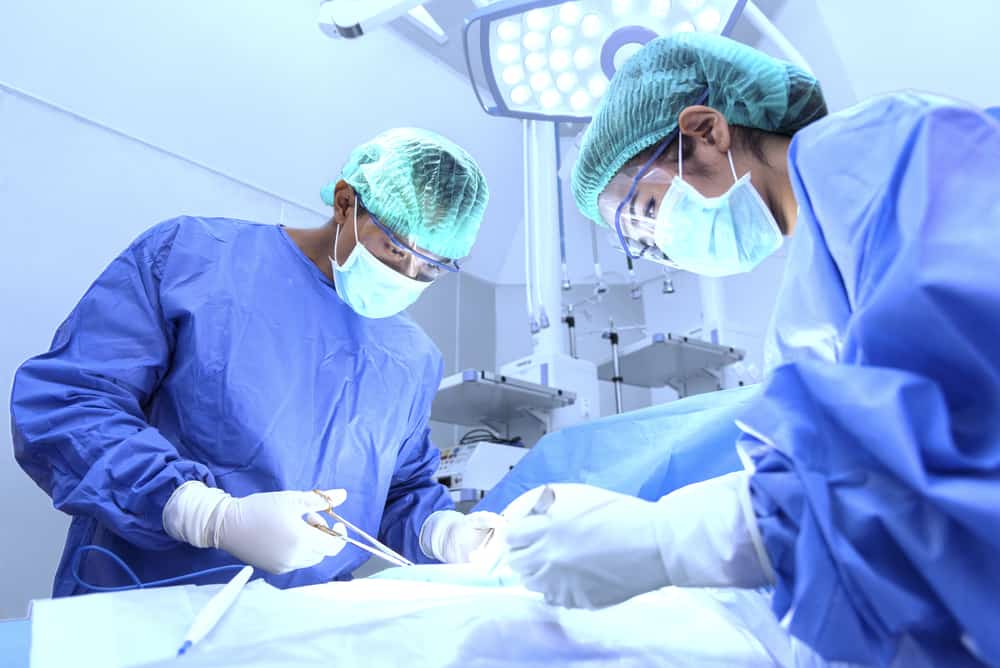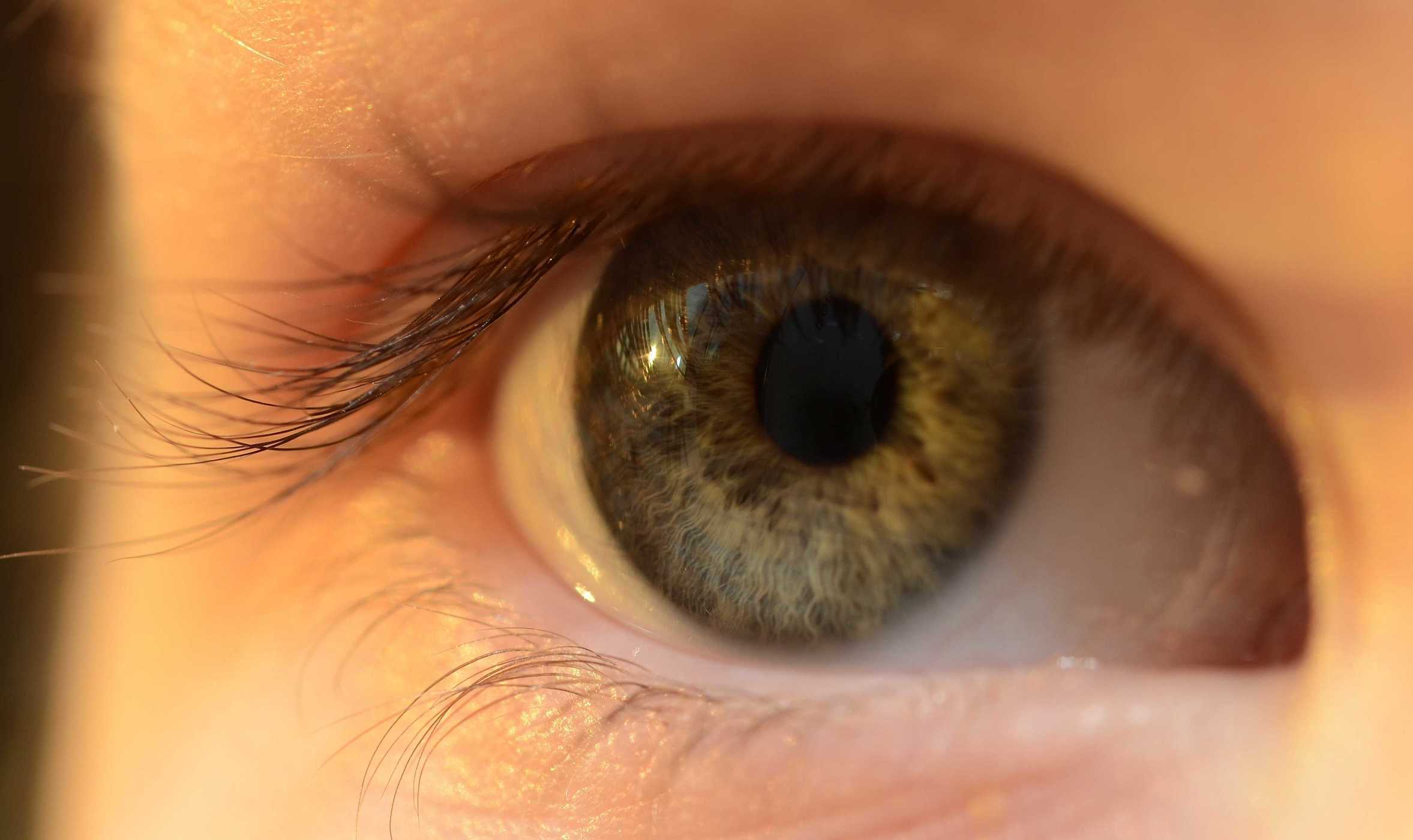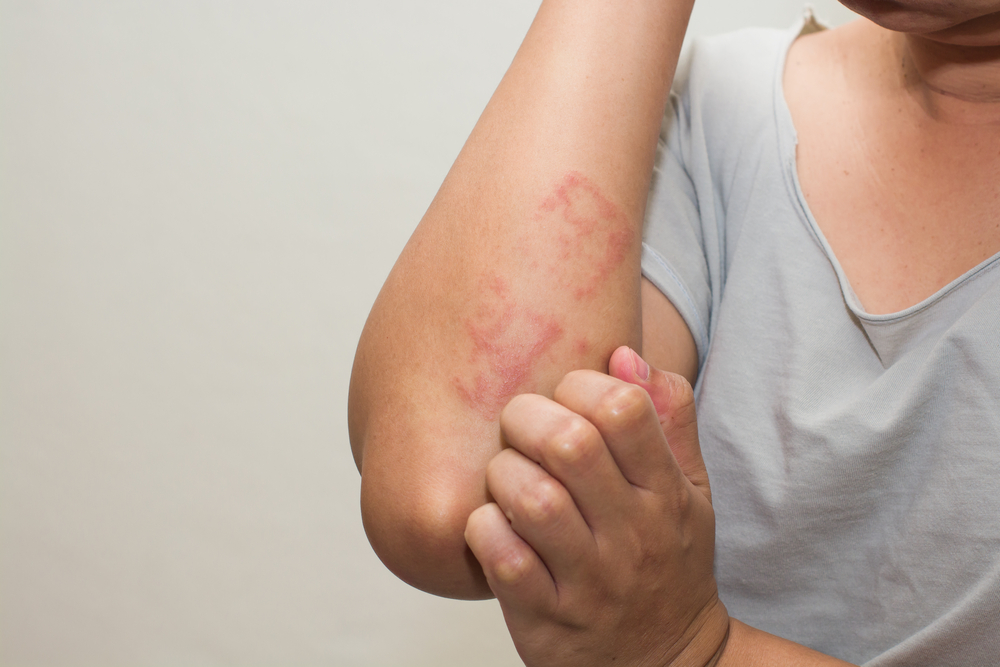Contents:
- Medical Video: Cervical Cancer Symptoms Awareness Video
- Get to know cervical cancer
- Various symptoms of cervical cancer that you should be aware of
- 1. Blood out of the vagina
- 2. Pain in the pelvis
- 3. Abnormal vaginal discharge
- 4. Experiencing CHAPTER schedule changes
- 5. Having excessive fatigue
- Can the early symptoms of cervical cancer be prevented?
- Stage of cervical cancer stage
- Stage 0
- Stage I
- Stage II
- Stage III
- Stage IV
- Treatment for cervical cancer
- Operation
- Chemotherapy and radiotherapy
- How to prevent the onset of cervical cancer?
- It is also important to do a screening test
Medical Video: Cervical Cancer Symptoms Awareness Video
Cervical cancer is a type of cancer that is most often experienced by women. According to world health agency (WHO)cervical cancer is experienced by more than one million women in the world. Actually, this cancer can be completely cured if detected early.
However, many women do not realize or even underestimate the signs they experience that might be a symptom of early stage cervical cancer. Then, what are the symptoms cervical cancer an early stage that women need to watch out for?
Get to know cervical cancer
Cervical cancer occurs when abnormal cells grow out of control in your cervix or cervix. This is usually caused by an infection of human papillomavirus (HPV) which attacks the cervix. When a woman is infected with this virus, it may be that women do not immediately suffer from cervical cancer. The immune system that every human being has is trying to fight this virus.
However, the HPV virus can last for years in a woman's body, develops, and eventually causes cells in the cervical wall to turn into cancer cells. So, you also suffer from cervical cancer.
The cause of cervical cancer is infection with the HPV virus. There are more than 100 types of HPV virus and 13 of them can cause cervical cancer. You can get infected with this virus by having sexual relations with someone who has an HPV virus.
The HPV virus causes cervical cancer to infect healthy cells in the uterine wall. So, healthy cells experience genetic changes into abnormal cells. Healthy cells eventually die and are replaced by abnormal cells that grow out of control. Abnormal cells that grow later form a large mass called a tumor.
Women who have HPV virus in their bodies may experience symptoms of cervical cancer and may not develop cervical cancer. HPV virus infection can disappear by itself.
However, other factors also influence the development of cervical cancer, such as lifestyle. Women who have the HPV virus coupled with a poor lifestyle are more likely to develop cervical cancer early symptoms.
Various symptoms of cervical cancer that you should be aware of
1. Blood out of the vagina
The symptoms of cervical cancer are very common. If you suddenly bleed or blot the blood from the vagina, even though at that time you were not menstruating, it could be a symptom of cervical cancer.
Usually, this bleeding occurs after you have sex. Or it could be blood coming out during menstruation, the amount is far more than usual.
Both of these can be symptoms of early-stage cervical cancer. Yes, even though blood discharge from the vagina can be caused by various things, then it's good if you immediately check your condition to the doctor.
2. Pain in the pelvis
Do you feel pain or pain in the pelvic area? If so, don't underestimate the pain. Pain in the pelvic area when entering menstruation may be normal. However, if you feel it when you do it sex with a partner, the pelvic pain that you feel is abnormal and can be a symptom of early stage cervical cancer.
If this happens, you should immediately consult yourself. You can also reduce pain by taking painkillers like ibuprofen.
3. Abnormal vaginal discharge
In fact, vaginal discharge is normal and every healthy woman must experience it. However, there are times vaginal discharge the vaginal discharge is abnormal and shows a health problem.
For example, if the vaginal discharge issued by miss V smells pungent and different from usual, then this indicates that you may experience a health problem. But, don't be afraid first, because abnormal vaginal discharge can be caused by various things, not necessarily as a sign of early symptoms of cervical cancer
4. Experiencing CHAPTER schedule changes
Even CHAPTER schedule changes can have symptoms of cervical cancer or other diseases. Note, whether you have recently become difficult to defecate. Because, this condition might indicate that you have cervical cancer.
If the mass of cancer of the cervix early symptoms have grown quite large, cancerous lumps can suppress your intestines and make you difficult to defecate. But, don't worry too much if you experience it, because this health disorder can be caused by other health conditions, not only as a sign of cervical cancer early symptoms
5. Having excessive fatigue
Fatigue is a common symptom of cervical cancer. Fatigue occurs as a result, cancer cells that begin to grow little by little take energy and reserve your body's food. This makes you lack food and eventually get tired. If these symptoms do not go away, then you should immediately consult a doctor.
Can the early symptoms of cervical cancer be prevented?
Actually it is rather difficult to know and recognize the early symptoms of cervical cancer, because usually in the symptoms of early stage cervical cancer, this disease does not cause any signs. Therefore, you should do it PAP smear periodically, because with the tool can be seen and detected if abnormal cervical cell activity occurs. So, cervical cancer can be prevented.
In addition, you can also vaccinate HPV so you don't contract cervical cancer later on. HPV is one of the causes of early cervical cancer. This virus spreads through sexual intercourse. If you experience sexually transmitted diseases, the risk of developing this virus is also quite high. For that, you also should always maintain vaginal hygiene to avoid various infections.
Stage of cervical cancer stage
Stage of cervical cancer is grouped based on the level of the main tumor, the spread of cancer to nearby lymph nodes, and the spread of cancer to other parts of the body that are far from where the initial cancer develops. Based on this, the spread of cancer cells is grouped into four stages. Reporting from American Cancer Society, here is the stage of cervical cancer stage:
Stage 0
At this stage, the cells in the symptoms of early stage cervical cancer, only in the cells on the outer surface of the cervix. These cancer cells have not attacked deeper cervical tissue.
Stage I
Stage 1 cervical cancer is a stage of cancer where cancer cells are only in the cervical organs. In the world of medicine, stage 1 cervical cancer will be divided into stages 1A (1A1 and 1A2) and 1B (1B1 and 1B2).
At this stage, cancer cells have attacked the cervix but do not grow outside the uterus. Cancer cells have not spread to nearby lymph nodes or spread to more distant parts of the body. Also note that stage 1 cervical cancer is divided into several groups, namely:
At this stage, the bad cells causing cervical cancer the initial symptoms have spread, but do not grow outside the uterus. Cancer cells have not spread to lymph nodes that are nearby or spread to farther places. The stages of symptoms of early stage cervical cancer are divided into several groups, namely:
IA Stadium: This is a form of early cervical cancer. Small amounts of cancer cells have invaded the cervix and this can only be seen under a microscope. Stage 1A is further divided into:
- Stage IA1: Cancer cells have attacked the cervical tissue with a depth of <3 mm and have a width of <7 mm
- Stage IA2: Cancer cells already exist in cervical tissue with a depth between 3-5 mm and width <7 mm
IB Stadium: Cancer cells can be seen without the aid of a microscope. The size of cancer cells is greater than that of stage 1A, but still spreads only in cervical tissue. Stage 1B is divided into:
- Stage IB1: Cancer can be seen and has a size of ≤4 cm
- Stadium IB2: The cancer cell size is greater than 4 cm
Stage II
At this stage, the cancer has spread beyond the cervix and uterus, but has not spread to the pelvic wall or the lower part of the vagina. Cancer cells also have not spread to the closest lymph nodes or to other distant body parts.
Stage IIA: At this stage, the cancer has not spread to the tissue near the cervix, but the cancer may have spread to the upper part of the vagina (not the whole vagina). This stage is further divided into:
- Stage IIA1: Cancer can be seen but still not greater than 4 cm
- Stage IIA2: Cancer is greater than 4 cm
- Stage IIB: Cervical cancer cells initial symptoms have spread to the tissue around the cervix.
Stage III
The cancer has spread to the lower part of the vagina or pelvic wall and may block the urethra. However, cancer cells have not spread to the nearest lymph nodes or to other parts of the body that are farther away. This stadium is divided into:
Stage IIIA: The cancer has spread to the lower third of the vagina but does not reach the pelvic wall.
Stage IIIB: There are two possible conditions in this stage IIIB, namely:
The cancer has grown to reach the pelvic wall and / or has blocked one or both of the urethra. This can then cause kidney problems.
The cancer has spread to lymph nodes around the pelvis but not to distant parts of the body. Tumors in stage IIIB can be of various sizes and may have spread to the lower part of the vagina or pelvic wall.
Stage IV
This is the final stage of cervical cancer. Cancer not only attacks the cervix, but also to the closest part of the cervix or to other body parts that are even far from the cervix. This stadium is divided into:
Stage IVA: Cancer cells have spread to the bladder or to the rectum, both of which are the closest organs to the cervix. However, at this stage the cancer cells have not spread to the nearest lymph nodes or to other body parts.
Stage IVB: Cancer cells have spread to other parts of the body that are far from the cervix, such as to the lungs or liver.
Treatment for cervical cancer
Operation
Surgery for early or early stage cervical cancer is usually in the form of removal of the cervix and uterus (hysterectomy). For some very early cervical cancers, it is possible that only a large portion of the cervix. With not all parts of the cervix removed, women still have the possibility of getting pregnant and giving birth afterwards, this is called a radical trachelectomy.
Chemotherapy and radiotherapy
For some of the larger early cancers (stage 1B or stage 2A), your doctor may recommend chemoradiotherapy first. You have external radiotherapy in 5 days (every week), for about 5 weeks.
Your doctor may also recommend that you run internal radiotherapy (brachytherapy) at the end of your course. During radiotherapy, you also have chemotherapy once a week or once in 2 or 3 weeks. This depends on the chemotherapy drugs you have.
How to prevent the onset of cervical cancer?
Actually, it is rather difficult to know and recognize the initial symptoms of cervical cancer, because usually at a very early stage, this disease does not cause any signs. Therefore, you should do it PAP smear periodically, because with the tool can be seen and detected if abnormal cervical cell activity occurs. So, cervical cancer can be prevented.
Besides that, you also need to do it HPV vaccination (Human Papilloma Virus) so as not to contract cervical cancer later on. HPV infection is known to be 99% of the early causes of cervical cancer. This virus not only spreads through sexual intercourse but also from touch (skin to skin contact). If you have other sexually transmitted diseases, the risk of getting this virus is also quite high.
It is also important to do a screening test
A screening test is one way to find out about cervical cancer early. This can be done if a woman has had sex. If a screening test is performed to determine the symptoms of early-stage cervical cancer, treatment and appropriate measures can be managed successfully.
Screening tests can actually prevent most causes of cervical cancer by finding abnormal (pre-cancerous) cervical cell changes that can be treated before turning into cervical cancer.
If diagnosed early, cervical cancer is one of the most treatable cancers. In the United States, cervical cancer death rates have decreased by more than 50% over the past 30 years. This is believed to be the reason for the effectiveness of screening tests or Pap smears.
Despite knowing the benefits of cervical cancer screening, not all women get the benefits. Most cervical cancer is found in women who have never had a Pap test or who have not done it lately.














